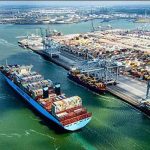The International Chamber of Shipping (ICS) presents a new report identifying hydrogen demand sectors, demand locations, and the demand-pull timeline.
The groundbreaking report, written by the Professor of Energy Economics at Biberach University of Applied Sciences, Germany, called “Turning hydrogen demand into reality: Which sectors come first?” focuses on the potential of clean hydrogen to function as an energy carrier and feedstock to decarbonise multiple sectors, especially hard-to-abate sectors.
The report identifies that to meet future hydrogen demand, the scale of renewable electricity demand for green hydrogen production is unprecedented and leads to once-in-a-generation opportunities and challenges.
Key findings
Hydrogen has an important but not dominant role in the transformation towards climate neutrality.
Hydrogen demand depends strongly on climate ambitions and could benefit from offtake agreements with multiple sectors.
Scenarios for future hydrogen demand show huge variability and uncertainty from now towards 2050.The rate and timeline of hydrogen uptake vary between sectors due to infrastructure, regulatory and sectoral ecosystem challenges and are likely to take place in stages.
To unlock investment, governments should also focus their attention on supporting demand side derisking over supply side subsidy.
Industrial demand, and not transport, will vastly dominate hydrogen demand in the coming decades, acting as a baseload for hydrogen demand.
The scale of electricity demand for green hydrogen production is unprecedented and leads to once-in-a-generation opportunities and challenges. The need for hydrogen transport by ship requires the energy–maritime value chain to shift towards a low-carbon infrastructure that is fit for purpose.
Maritime trade infrastructure is essential for scaling up hydrogen demand and reducing costs.
Demand-pull for hydrogen is further enabled by trade.
The role of maritime shipping is primarily as an enabler of a hydrogen economy and is key for global energy security
“For global hydrogen demand to keep the net-zero by 2050 scenario within reach, demand for hydrogen-based fuel sources would need to scale five times from current levels to reach approximately 500 million tonnes from 2030 to 2050. One of the main takeaways in this report is the high variability in potential demand. Industry will dominate the hydrogen demand. Shipping, however, can play a key role as an enabler of the hydrogen economy,” said Guy Platten, Secretary General of the International Chamber of Shipping
Source: Safety4Sea





